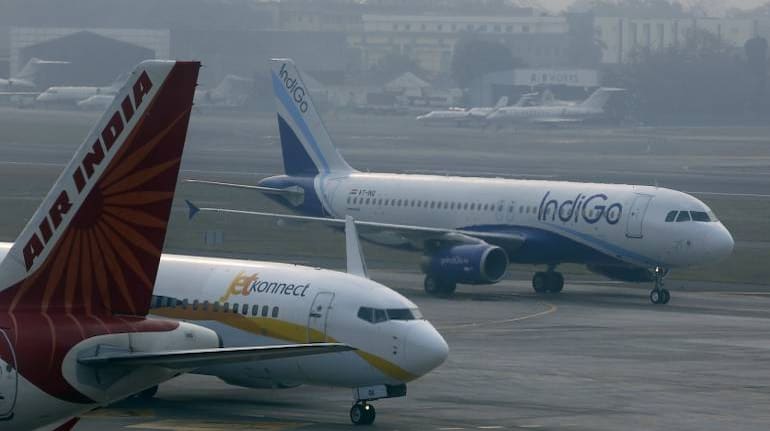



Last week IndiGo was in the news repeatedly, first for the cabin crew reporting sick followed by Aircraft Maintenance Technicians doing the same. This comes on the backdrop of intermittent protests by SpiceJet staff at the Delhi airport in the last one year. This was quickly followed up by a similar situation at Go FIRST even as social media was abuzz with delays on the salary front.
Like in the past, IndiGo neither denied nor accepted what was happening. The airline had faced a mass disruption in February 2019. The airline initially blamed a storm in Delhi which led to diversions of flights and pilots exceeding Flight Duty Time Limitations (FDTL). However, the airline later accepted that it was a pilot shortage, and declared that flights would be cut back over the next few weeks.
A lot of water has flown under the bridge since then. The fall of Jet Airways and multiple waves of the COVID-19 pandemic has changed the aviation sector. The peak traffic months of May and June are well behind us, as the lull phase sets in with air traffic stabilising at 80 percent levels of pre-COVID-19 average, and flights deployed at 72 percent of approved summer schedule. Aviation Turbine Fuel (ATF) and the rupee-dollar parity have become far worse than what they were pre-COVID-19, and in between lies the conflict of something invaluable — human resource.
The airlines have resorted to pay cuts, and in some cases layoffs to tide over the pandemic-induced crisis, where the revenue and operations were way lower than what the numbers were pre-COVID-19. Two years into the pandemic, most sectors are recovering, except aviation. As reports of record hikes amidst attrition come in from the service industry, it is but natural that employees in the aviation sector ask about restoring salaries, if not increasing them, even as inflation is increasing regularly.
This has so far not led to a major disruption, but it could snowball into a situation, similar to what is being witnessed in Europe where airports are forced to put daily caps on passenger numbers. This is because airline staff who were laid off have opted for other career options, and the airlines now face a staff shortage.
While technical staff with an airline have little options outside the sector, the same is not true for cabin crew or corporate roles which are sector agnostic and are closely linked to hospitality where the hiring has been stronger, and the growth better than that of the airlines.
The RiskA vocal workforce has not been a norm in the aviation sector. Protests, often attracting media attention, happened only when the airline was on its last leg with pending salaries. The current situation is new for both the airlines and the staff. This disruption is a double-edged sword. A cash-intensive business like an airline has a lot at stake in terms of reputation. A disruption from employees makes instant news, and that has a possibility of impacting future bookings, drying up the revenue stream for the airline. While the employees are fully aware, more often than not they resort to this only as a last measure. In most cases currently, it feels like the last measure is nearing, if not already there.
Movement In The IndustryThe last large airline to take to the skies was Vistara, in 2015. Seven years later there is an opportunity like no other. Akasa Air is starting later this month. Beyond pilots, crew, and engineers, there has been a lot of movement in the corporate roles with airlines poaching executives from rivals, and airlines doling out counter offers to protect their flock. In one way or another, the cost of operations is going up.
From being one team, the post-pandemic aviation world has seen the discussion move to management versus pilots/technicians or staff in general. Both sides have their grouses. The top management feels that the employees were taken care of in the worst days of the pandemic. While salary cuts were the norm, job losses were at the minimum.
But things have turned out differently for most industries. What seemingly triggered discontent at IndiGo was stock options to certain segments of management at a time when salaries were far from normal. While salaries are a closely guarded secret, in this case the stock options had to be filed with the stock exchange, and that is how it became public.
Once these details came out, the discontent grew stronger. Industrial relations, or the human resource angle to this is the most needed than anything else. A genuineness in addressing the issue is the least that any organisation can do, and that forms part of the human response management, and not human resource management. The scheduling of crew - both cockpit and cabin has been taken over by software long back. Many feel that the humane angle is lost in this with everyone being treated as mere resources who would turn up to work at any time of the day because it fits within legal limits. This grouse is best handled with a Human Response. In case of IndiGo, the airline has often been called ‘robotic’, it now seems that the staff itself is feeling the same internally.
The sad reality though is that the fares have not moved north as much as the costs have, and for any organisation to give out money to its employees, it needs a steady and profit-making business — which the airline industry does not see on the horizon.
Ameya Joshi runs the aviation analysis website Network Thoughts. Views are personal and do not represent the stand of this publication.
Discover the latest Business News, Sensex, and Nifty updates. Obtain Personal Finance insights, tax queries, and expert opinions on Moneycontrol or download the Moneycontrol App to stay updated!
Find the best of Al News in one place, specially curated for you every weekend.
Stay on top of the latest tech trends and biggest startup news.